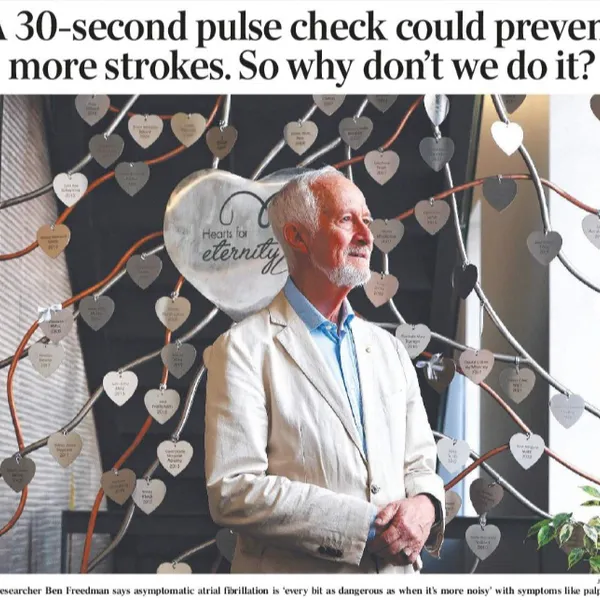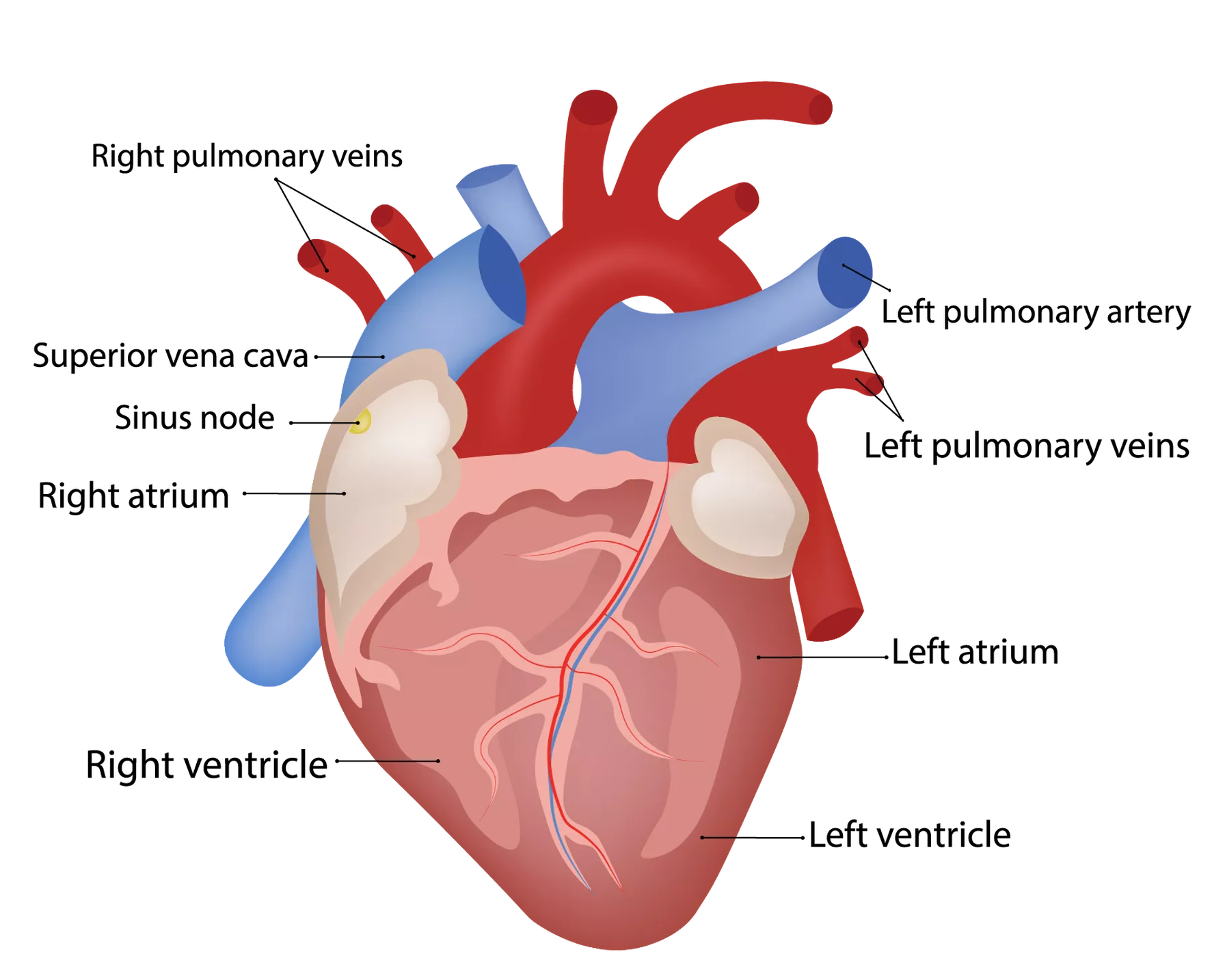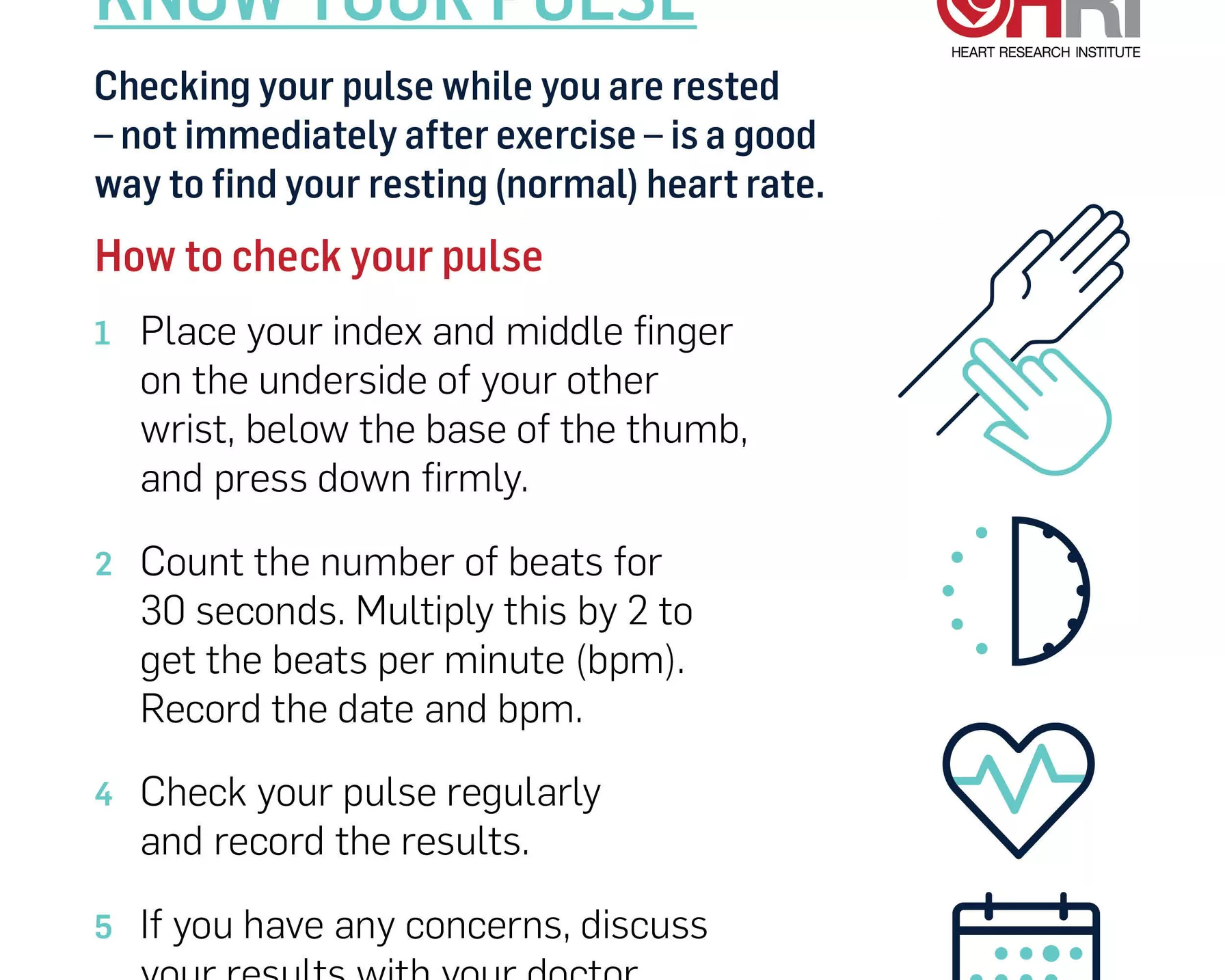
Definition: what is an irregular heartbeat?
An irregular or abnormal heartbeat is a type of heart condition known as an arrhythmia. In this condition, the heart rhythm is not steady. Instead, you may feel the heart skipping a beat or adding extra heartbeats every now and then. The heart may feel like it is fluttering or racing, or it may beat faster or slower than normal.
Some irregular heart rhythms are harmless, but others can be more serious or even life-threatening.
It is also normal for a person to have a fast or slow heart rate according to their activity at the time. For example, the heart rate may slow down during sleep or when the person is at rest, or it may increase during exercise or times of stress or anxiety.
Types of irregular heartbeat
The most common type of irregular heartbeat is premature heartbeats. These are extra beats that occur singly or can occur in patterns alternating with the normal heartbeat. Everyone experiences these extra beats occasionally, but most people do not notice them. While some heart diseases can cause these beats, most of the time they are harmless. Physical activity, stress, or even caffeine and nicotine can cause an increase in premature beats.
In general, the types of irregular heartbeat can be grouped by the speed of the heart rate. A normal resting heart rate is regular, with a rate usually between 60 to 100 beats per minute.
Tachycardia
Tachycardia is a fast heartbeat, where the resting heart rate is greater than 100 beats per minute. The two main types of tachycardia are the following.
- Supraventricular tachycardia: This type covers irregular heartbeats that start in the atria or AV node, above the lower chambers of the heart (ventricles). It can cause bursts of a rapid but rhythmically regular heartbeat that can last for a few seconds to a few hours. These are usually not life-threatening.
- Ventricular tachycardia: This type occurs when there are faulty electrical signals within the ventricles, and it can be very dangerous. The rapid heart rate does not allow the ventricles to properly fill with blood, and as a result, the heart cannot pump enough blood to the body. This can often happen if the heart is damaged from a previous heart attack.
The irregular heartbeat conditions that are classed as tachycardia include the following:
- Atrial fibrillation: This is the most common type of tachycardia, where the heart beats in a rapid, irregular way. It may not cause any symptoms, or the symptoms may only occur some of the time. It can remain undetected for long periods of time. While in itself it may not be dangerous, it is important to screen for atrial fibrillation and treat it because it increases the risk of other conditions, such as heart failure and stroke.
- Atrial flutter: This is similar to atrial fibrillation, but the abnormal heart rhythm has a more consistent pattern. It is also linked to stroke.
- Ventricular fibrillation: In this type, the ventricles quiver instead of contracting to pump blood, resulting in a rapid, uncoordinated and fluttering heart rhythm. This type usually has links to cardiovascular disease and can be life-threatening. It can cause a sharp drop in blood pressure and is often triggered by a heart attack.
Bradycardia
Bradycardia is a slow heartbeat, where the resting heart rate is less than 60 beats per minute. A slow heart rate does not necessarily indicate a problem. In a physically fit person, the heart may still be able to pump enough blood to the body even with fewer than 60 beats per minute when at rest. This only becomes problematic if the heart beats so slowly that it cannot pump enough blood to meet the body’s needs.
Types of bradycardia include the following.
- Sick sinus syndrome: In this condition, the sinus node in the heart (the natural pacemaker of the heart that sets the pace of the heartbeat) does not work properly, and the heart rate may alternate between too slow and too fast. This grows more common with age, but it can also be caused by coronary heart disease.
- Conduction block or heart block: This is when there is a block or delay in the heart’s electrical pathways that causes the signals that trigger heartbeats to slow or stop. It often results from damage to the heart’s electrical pathways caused by coronary heart disease and ageing.
Irregular heartbeats can start above the ventricles or can be caused by faulty electrical signals within the ventricles.
Irregular heartbeat symptoms
People generally do not notice their heartbeat when it is beating normally, and many people with an irregular heartbeat may have no symptoms. Experiencing occasional heart palpitations when physically or emotionally stressed is common, but speak to your doctor if the symptoms are ongoing or if you are concerned.
Irregular heartbeat symptoms include:
- fluttering in the chest
- persistent palpitations that feel like pounding
- racing heartbeat
- slow heartbeat
- skipped heartbeats
- chest pain
- shortness of breath.
Other symptoms of irregular heartbeat include:
- dizziness, lightheadedness or fainting
- sweating
- anxiety
- fatigue.
Main causes of irregular heartbeat
Problems with the heart’s rhythm can occur when there is any interruption to the electrical signals that stimulate the heart’s pumping activity. Things that can cause an irregular heartbeat include:
- heart attack or damage from a previous heart attack
- heart disease, including blocked arteries in the heart
- diabetes
- obstructive sleep apnoea
- high blood pressure
- structural changes in the heart
- problems with the thyroid gland
- imbalances in the body’s electrolyte levels
- stress or anxiety
- smoking
- excessive alcohol or caffeine intake
- use of illicit drugs
- certain medications and supplements.
When should I be worried about an irregular heartbeat?
Having an irregular heartbeat can be a symptom of a more serious underlying disorder. These include having:
- cardiovascular disease
- congenital heart disease
- abnormalities in the heart’s structure
- problems with the electrical pathways in the heart
- an overactive thyroid gland.
It you notice signs and symptoms of irregular heartbeat, speak to your doctor to have a check-up.
Complications of irregular heartbeat
Irregular heartbeat can lead to further health complications.
One in every three strokes is linked to atrial fibrillation, and these strokes are more severe than other strokes. People with atrial fibrillation are also five times more likely to have a stroke compared to those without.1 Recent research by the Heart Research Institute (HRI) has also confirmed a strong link between atrial fibrillation and dementia.
Having prolonged irregular heartbeat can result in heart failure. When the heart is failing, it cannot pump enough blood and oxygen to meet the body’s needs.
Screening for irregular heartbeat
To screen for irregular heartbeat and diagnose the type, your doctor may take your medical history and do some tests, such as:
- a physical exam and checking your pulse
- blood or urine tests to rule out other causes
- taking an electrocardiogram (ECG) to measure the heart’s electrical activity
- taking an echocardiogram, an ultrasound that produces moving pictures of the heart that can help show structural heart disease or blood clots in the heart
- a tilt-table test to identify if sudden decreases in blood pressure or heart rate are the cause
- a stress test to measure the capacity of the heart during exercise.
As irregular heartbeat symptoms are intermittent, the use of a portable ECG device may be needed. Handheld ECGs and smartwatches with ECGs are increasingly available to consumers.
To record the electrical activity of the heart for longer periods of time, increasing the chance that irregular heartbeat symptoms will be recorded, medical devices can be worn by patients. A Holter monitor can be used to record the heart’s activity for 24 hours or longer, while patches can record for two weeks. An event recorder can be used to record the heart’s activity over weeks to months.
While only your doctor can diagnose irregular heartbeat, you can keep an eye on your heart health by regularly checking your pulse.
Self-screening for irregular heartbeat
Your pulse can indicate how well your heart is working, how fast it beats, and its rhythm and strength. Keeping a record will help you notice if there is anything different or unusual with your results.
A normal pulse, or resting heart rate, ranges from 60 to 100 beats per minute. Your pulse should beat steadily and regularly. A pause or extra beat now and then is normal, but if you notice frequent skipped or extra beats, speak to your doctor. Also speak to your doctor if your pulse is consistently outside the normal range, as this may indicate an underlying problem.
To check your pulse:
- Place your index and middle finger on the underside of your other wrist, below the base of the thumb, and press down firmly.
- Count the number of beats for 30 seconds. Multiply this by 2 to get the beats per minute (bpm). Record the date and bpm.
- Check your pulse regularly and record the results.
- If you have any concerns, discuss your results with your doctor.
Treatment for irregular heartbeat
Treatment will depend on the specific type of irregular heartbeat, its cause, as well as other existing medical conditions. Not all irregular heart rhythms are dangerous or require treatment. Your doctor will determine the treatment plan that will suit your specific situation. Treatment options may include the following.
- Medication: These may be prescribed to control or stabilise the heart rate, or treat an underlying condition that is causing the irregular heartbeat.
- Medical devices: Various medical devices are available depending on the purpose of treatment. A pacemaker can be implanted to stimulate the heart if the heart rhythm is too slow. An implantable cardiac defibrillator can monitor and correct more dangerous heart rhythms.
- Defibrillation: This uses a mild electrical current to reset the heart’s rhythm.
- Surgery: In some cases, surgery may be required to remove or inactivate malfunctioning areas of the heart.
- Lifestyle changes: Your doctor may recommend healthy lifestyle changes if the irregular heartbeat is related to factors such as smoking or alcohol intake, stress levels, weight, diet, inactivity, high blood pressure or high cholesterol levels.
Preventing irregular heartbeat
The risk of irregular heartbeat is increased by the following factors.
- Heart disease: Anyone with heart disease or a history of heart attack or heart surgery has an increased risk of irregular heartbeat. Heart defects from birth (congenital heart disease) can also increase the risk.
- High blood pressure: This can increase the risk of irregular heartbeat, particularly if not controlled by lifestyle changes or medication.
- Other chronic health conditions: Sleep apnoea and diabetes can increase irregular heartbeat risk, as can other chronic conditions such as kidney disease and lung disease.
- Stimulant use: Smoking, alcohol, caffeine and certain medications may trigger episodes of irregular heartbeat.
Simple lifestyle changes such as the below could help to prevent and manage irregular heartbeat as well as improve overall health and wellbeing.
- Control high blood pressure through medication or dietary changes.
- Exercise regularly, such as by setting up your own exercise program.
- Reduce alcohol consumption.
- Manage comorbid conditions like diabetes through diet or medication.
- Quit smoking.
How is HRI fighting irregular heartbeat?
HRI is conducting research to prevent health complications from irregular heartbeat conditions like atrial fibrillation. The mission of our Heart Rhythm and Stroke Prevention Group is to prevent as many strokes as possible through early detection of silent atrial fibrillation, and to implement appropriate guideline-based management. With a clinical implementation focus, the Group is exploring novel strategies using eHealth tools and patient self-screening to detect unknown silent atrial fibrillation.
If screening for atrial fibrillation could be implemented more widely in people aged 65 and older, along with preventative treatments being prescribed as advised in guidelines, then thousands of strokes could be avoided globally, making a difference to patients and their families.
References
- Wolf PA et al; Atrial fibrillation as an independent risk factor for stroke: the Framingham Study. Stroke. 1991;22:983–988.
Related News





